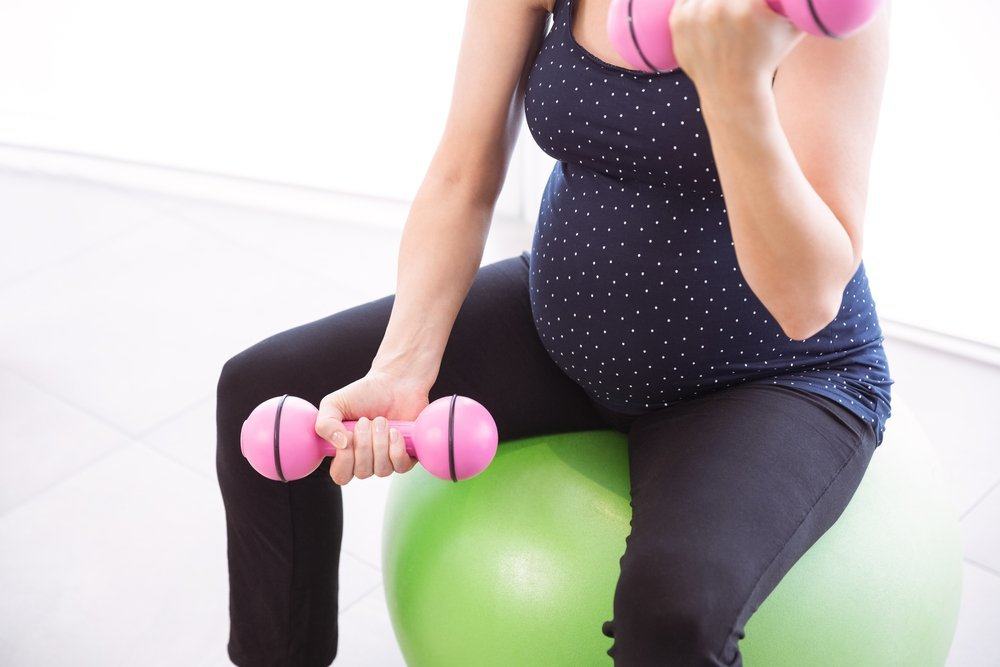Contents:
- Medical Video: Exercise During Pregnancy
- When should pregnant women stop exercising?
- When to check with a doctor before exercising?
- What sports are safe during pregnancy?
- What should be considered when doing sports?
Medical Video: Exercise During Pregnancy
When you are pregnant, you definitely want to do anything to protect your health and your baby. In addition to eating food well, getting enough rest and staying hydrated, exercise is another important thing for a healthy pregnancy. But as the stomach grows and the pain in the back appears, it can make exercise too risky. To be safe, you need to know the limits when you need to exercise, and when pregnant women should stop exercising.
When should pregnant women stop exercising?
During the last three months of your pregnancy, exercise will be difficult and make you uncomfortable. If you are advised to rest in bed, then you may have to stop exercising altogether. However, if you have a healthy pregnancy, you may only need to adjust and reduce the amount of your practice. In the second trimester, you are not allowed to be in a supine position, so you should not do yoga movements that need this position. Throughout your entire pregnancy, you should avoid exercise that risks harming you and your future baby.
There are certain sports and activities that are dangerous if done during pregnancy. This includes:
- Activities of holding your breath in any activity.
- Sports that allow you to fall (like skiing, horseback riding, etc.).
- Sports that do a lot of body contact, such as softball, soccer, basketball, volleyball, and others.
- Exercises that can cause mild abdominal trauma such as activities that include sudden movements, or changes in direction very quickly.
- Activities that require leaps, reflections, or runs.
- Sit-ups.
- Stretching that requires a leap.
- Waist rotated.
- Heavy exercise followed by a long period of inactivity.
- Exercise during hot and humid air.
In addition, in general the American College of Obstetricians and Gynecologists (ACOG) recommends not doing cardio during pregnancy if you have one of the following conditions:
- Several types of lung and heart disease.
- Cervical insufficiency or cerlage (premature dilation).
- Twin pregnancy, if you are at risk for premature pregnancy.
- Continuous bleeding in the second or third trimester.
- Placenta previa after 26 weeks.
- Premature labor during pregnancy.
- Membrane rupture.
- Preeclampsia or gestational hypertension.
- Severe anemia.
Some pregnant women with this condition may still be able to exercise under close medical supervision. Talk to your doctor for the best conditions.
When to check with a doctor before exercising?
If you have certain health conditions, you must be careful before you start exercising. Ask your doctor to recommend regular exercise and be safe if you have one or more of the following conditions, namely:
- Anemia
- Abnormal heart rhythm
- Type 1 diabetes is poorly controlled
- Uncontrolled high blood pressure
- Morbid obesity or very thin
- Passive lifestyle history
- Injury to bones or joints
- Uncontrolled seizure disorders
- Uncontrolled hyperthyroidism
- History of heavy smoking
What sports are safe during pregnancy?
Most sports are safe during pregnancy (except those mentioned above), provided you do it carefully and don't overdo it. The safest and most productive sport is swimming, brisk walking, cycling on a static indoor engine, and low-impact aerobics (must be taught by certified instructors). Sports only have a small risk of injury, so you can do it until giving birth. Tennis and badminton are actually safe, but changes in balance during pregnancy can affect movement. Other activities such as jogging can be done slowly.
What should be considered when doing sports?
For maximum fitness, an exercise program during pregnancy should be able to strengthen and condition your muscles. To get started, always warm up and stretch for 5 minutes each. Include cardiovascular exercise, at least 15 minutes. Measure your heart rate at the peak of activity. Follow with 5-10 minutes light aerobics gradually, which ends with cooling.
Here are some sports guidelines for pregnant women, namely:
- Wearing loose and comfortable clothes, and a good sports bra.
- Choose shoes specifically for the type of exercise you will do, to avoid injury.
- Eat enough calories to meet your pregnancy needs and also your exercise program.
- Finish eating at least one hour before exercising.
- Drink water before, during, and after exercise.
- Stand slowly and gradually after exercise to avoid dizziness.
- Never exercise until the point of fatigue. If you can't talk normally while exercising, then it's a sign that you have to slow down your activities.
READ ALSO:
- Eat Pineapple When Pregnant Can Make Miscarriages, Really?
- Traveling During Pregnancy We recommend that when the age of how many months?
- 8 Nutrients Most Needed During Pregnancy
- Diligent Pregnant Women Exercising Gives Birth to Smart Babies












